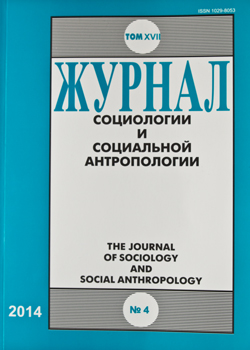Working Groups in the Courts of St. Petersburg
Keywords:
organizational analysis, courts, working group, plea bargaining
Abstract
This article presents a study of the Russian courts from the perspective of organizational theory. The first part of the paper is devoted to the basic framework of the organizational approach in sociology of law. The author builds on the concept of “courtroom workgroup” introduced by Eisenstein and Jacob in 1977. A workgroup consists of judges, prosecutors, defense counsels, court administration, and, in some cases, defendants. The outcome of a case is not a singular decision of a judge, but the result of interaction between the members of a given working group. Through informal negotiations a judge, a prosecutor, and a defense counsel can achieve different kinds of benefits, such as workload reductions for the judge or obtaining a guilty verdict in “weak” cases for the prosecutor. The main tool the members of the workgroup use is plea bargaining. In the second part of the paper, organizational theory is applied to the study of the district courts in St. Petersburg. The empirical analysis is based on interviews with members of the Russian litigation process and observations in the district courts of St. Petersburg. The author focuses on the internal and external contexts, mechanisms of workgroup formation, and the role of negotiation in the Russian courts. As confirmed by the observation in courts, the concept of “courtroom workgroup” is well applicable to the Russian reality. Although the process of plea bargaining is legalized in Russia, there is still a large margin for informal negotiations.
Published
2014-08-20
How to Cite
Moiseeva, E. (2014). Working Groups in the Courts of St. Petersburg . ZHURNAL SOTSIOLOGII I SOTSIALNOY ANTROPOLOGII (The Journal of Sociology and Social Anthropology), 17(4), 86–100. Retrieved from http://jourssa.ru/jourssa/article/view/674
Section
Sociology of Law

